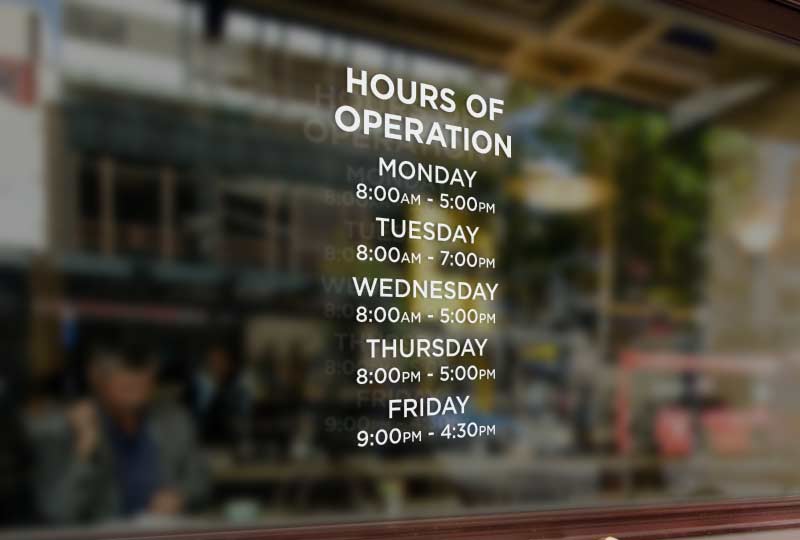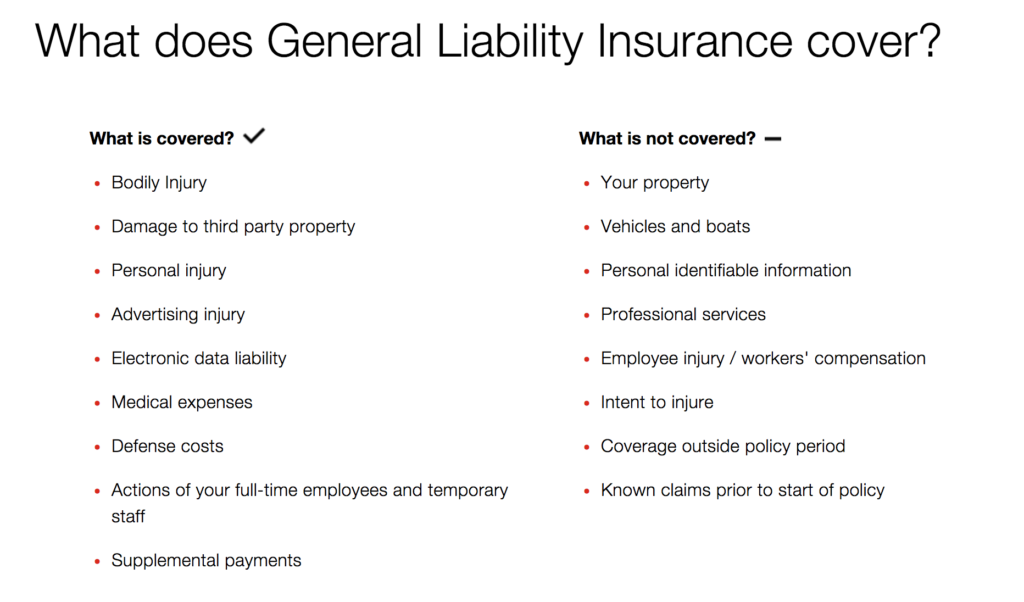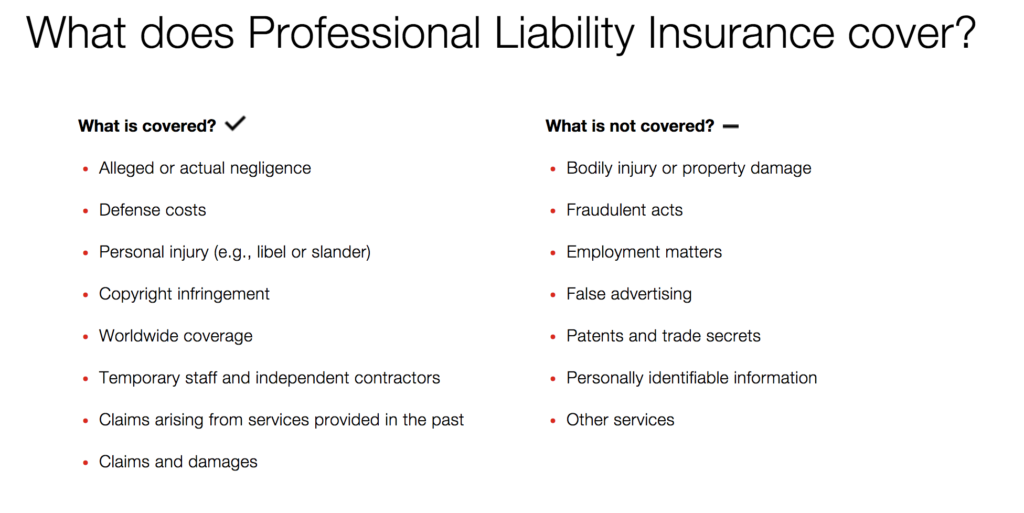Last Updated: February 14th, 2020
Our small business tips have been assembled to help you grow your own business. No matter what industry you are in, these tips can be applied to help you maximize what your business is capable of.
Unlike more generic business tips you will find online, our small business tips are heavily shaped by our personal experiences. Growing our photography business into something successful has been a long road. This road has been paved with many highs and lows. We’ve created this article to help put some of what we have learned to good use helping our readers get more from their small businesses.
Beginner Small Business Tips
1). Start a Business Around Something You Love
 The businesses most likely to succeed are those built around a product or service you are really passionate about.
The businesses most likely to succeed are those built around a product or service you are really passionate about.
As we mentioned in our intro, we are professional photographers. Our passion for photography and capturing beautiful moments for the people we work for has been something that has driven us through even the toughest times.
On top of that, running a business itself is pretty exciting at times. We often learn things as we go. And one of the most exciting parts as you begin to pick up steam is seeing that people are actually willing to pay you for what you offer.
2). Understand the Risks
Having a small business is rewarding when things are going well, and very hard when it isn’t. We have experienced a roller coaster of emotions on our journey of running a business. Almost everything involved will require some amount of risk from you. While the payoff can be great, it is never guaranteed. Some of the things we have personally experienced include:
- Financial strain as we made investments into our business
- Missing out on spending time with family/friends
- Having no time for hobbies we enjoy
- Concern that things won’t work out over the long term
We speak from a position of doing well, but others are not as fortunate. More dramatic risks associated with running a small business unsuccessfully include:
- Having to file bankruptcy due to too much debt
- Advancing technology making your business irrelevant
- Having to return to a 9-5 day job
- The feeling of failure…
The risks are always the toughest to talk about, but important to be aware of. Ultimately, we view our business as a gamble – but one that has been worth it. And for us, it’s paying off well – not just financially, but in allowing us more freedom that just can’t be found working somewhere else.
3). Keep Your Day Job in the Start Up Phase
One of the biggest reasons why small businesses fail is because they run out of money (we know…it’s hard to believe!). While not easy, keeping your day job while you start up your business will allow you to have a steady stream of funds that you can use to support your business and personal welfare.
This is a point that really hits home with us, as we have worked full time jobs while running our photography business. For over 2 years, we have done this – and while extremely hard at times, it has allowed us to have financial independence and security.
If you take this approach, any unnecessary spending should be put on hold and save money for the time you are able to break away and run your business exclusively. Having a solid savings will provide you with a great foundation for making it through any unforeseen slow seasons.
4). Maintain Your Personal Health Goals

This might seem strange to feature in a list of small business tips, but it’s actually very important. One of the downsides of running a business AND working a day job is it begins to take a serious toll on your health. As we write this, we’re coming away from our high season, which has lasted around 4 months. In this timeframe, we’ve been working easily 100 hour weeks without a single day off.
In this time, we’ve lost a lot of weight and mentally feel not entirely there. It’s been frustrating because we’ve lacked energy and time to maintain our normally healthy lifestyles.
While this sort of sacrifice is manageable for a short term window, it definitely is not long term. We highly suggest maintaining your personal health through the process of starting a business. As you become busier, it becomes increasingly important to carve out time for exercise and eating right.
You can, of course, help streamline some of this by making your own home gym so you don’t even have to take time to drive to one. Using food delivery services, you can remove the need to go to the grocery store as well.
5). Find a Mentor
No matter what industry you are setting a business up in, it’s always ideal to learn from someone who is already experienced. You’re mentor doesn’t necessarily have to be in the same industry as a lot of their input about running a business will be transferable.
As photographers, learning through others as essential to us growing our business and skill sets. Early on, we would shadow other wedding photographers as assistants and second shooters. This allowed us to learn the ropes of photographing weddings without having to commit all of our own time and resources.
If you’re having trouble finding a real life person to mentor you, don’t worry. We’ll discuss these things more later in this post, but there is enough educational resources online that you can self-educate using free and paid web content.
6). Know Your Competition
Every small business will face competition. Unless you are one of the first companies on the scene of a never-before-seen industry, kind of like MySpace was at the advent of social media, you are not going to be the only player.
As photographers, we’ve knew going into our business that we work in a highly saturated industry. Pretty much everyone is a photographer these days.
The most important thing we’ve learned? Just because things are competitive doesn’t mean it’s impossible to succeed. However, you will need to be prepared to do what it takes to carve out your own little slice of the market share. This is what we’ve done in photography, and it’s what you can do in whatever industry you’re working in!
7). Get Organized
Organization is one of many broad small business tips that we’ll expound upon throughout this article. There are many ways to be organized. At it’s core, “organization” is something you need to act upon. It requires your actions to get organized and stay organized. A lot of businesses end up failing because they never had this basic structure – so it’s an important first step to take from day 1.
8). Keep Detailed Records
Ah…record keeping. Probably the most exciting business thing we get to do. Sarcasm aside – keeping detailed records is essential. We keep logs on our clients, file away contracts and invoices, information about our suppliers and third party services, and so on.
9). Be Creative
 Your creative ingenuity will be what helps to separate you from other business providers. While at face value, some industries may not come across as requiring of a lot of creativity, this is always something that is needed.
Your creative ingenuity will be what helps to separate you from other business providers. While at face value, some industries may not come across as requiring of a lot of creativity, this is always something that is needed.
Creativity is often associated with an artistic sense. For us as photographers, this is an easy enough analogy to grasp as our art is the product that literally defines our business. But, the real creativity of our small business is how we make it work without a large profit margin. How we manage our cash flow. In being creative, most people probably won’t even see it in action. But, it’s one of those bread-and-butter features of all good businesses – big or small.
10). Stay Focused
The ability to maintain your concentration and “stay the course” is one of the things that will determine if you can take your business the distance. This is especially true when you face difficult times.
This is something we like talking about a lot. In the context of our business, we’ve maintained our focus for several years. We certainly have down days where we think things are not going well. It can be frustrating during our slow season when there is hardly any money rolling in. But it’s at these times that we hunker down the most. We go hard on our marketing efforts, hone our personal skills, and take care of things that we neglect when we are busy.
11). Be Ready to Make Sacrifices
The most resonate small business tips that we have lived heavily in the past few years has been this one. Our business has been built on sacrifices of all types. We’ve made sacrifices that have led to limited abilities to do things we’d rather be doing in the hope that we are investing in a better future for ourselves. We have missed out on seeing friends and family. And we’ve given up a lot of money in exchange for photography gear and business products that we need to run our business. The list goes on and on.
12). Set Up a Legal Business Entity
There are several business types to select from. We’ve noted a few of these here:
- Sole Proprietorship
- Limited Liability Company (LLC)
- S Corporation (S Corp)
- Corporation
By default, sole proprietorship status is attributed to every single person business. There is paperwork filing to make this official, but the legal system treats people as this simple classification by default as well. In truth, this business status offers little in the way of protection for you, and is not ideal.
Setting up an LLC is likely the preferred option – and the choice we went with. There are some great advantages that come with starting an LLC, most significantly the limited liability of you (as an individual) for things done by the business. For example, if you were to be sued for actions taken by your photography business, only your business assets would be vulnerable – not your personal assets.
Larger companies may elect to set up as a corporation. We most commonly associate companies like Wal-Mart and Target this this business type because they take full advantage of the corporation legal benefits.
13). Schedule Out Your Work Day
One of the easiest ways to get organized in practice is by scheduling out your day.
This can be as specific or loose as you want it to be.
Below are 2 different work day schedules we commonly see in our business. Please note, these are simplified as well 🙂
Work from home day. These are days where all of our work is being done at home. This normally comprised of photo editing, accounting, phone calls with clients, putting together wedding photography timelines, and so on. Basically – 95% of the things require us to sit in front of a computer.
- 8AM – 9AM: Respond to emails
- 9AM – 11AM: Blog
- 11AM – 12PM: Edit photos
- 12PM – 1PM – Break
- 1PM – 4PM – Edit photos
- 4PM – 5PM – Update social media
- 5PM – 5:30PM – Break
- 5:30PM – 6PM – Prospective client phone call
Photo shoot + work from home. These are days where our work day is broken up with actually providing our photography service to clients. It’s the same stuff at home as before, but factoring in additional time to do our job.
- 8AM – 9AM: Photo Shoot
- 9:30AM – 10AM: Respond to emails
- 10AM – 11AM: Blog
- 11AM – 12PM: Edit photos
- 12PM – 1PM – Break
- 1PM – 4PM – Edit photos
- 4PM – 5PM – Update social media
- 5PM – 5:30PM – Break
- 5:30PM – 6PM – Prospective client phone call
14). Set Business Hours
 When we go to a local hardware store, we know they are only going to be open for business between 9AM and 9PM.
When we go to a local hardware store, we know they are only going to be open for business between 9AM and 9PM.
Having business hours makes you so you can have time that you can take off for your personal self. If you are running a store or providing a service like us, we all know the work doesn’t stop just because the doors close. But! You can use limited business hours to help with scheduling more taxing parts of the business such as meeting with clients.
By setting hours, you force other people to do business with you on your terms.
Put another way, business hours make people respect your business.
They show up when you say you will be ready and prepared for them. You make people adjust their schedules to work with you, not the other way around.
This isn’t to say you can’t schedule things like meetings outside of these hours from time to time. We absolutely do!
15). Stick to Any Rules You Set for Yourself
Small business owners are prone to breaking their own rules time and again. As we just talked about setting business hours as a way to really set some baseline expectations with people interested in doing business with you, that’s a good area to continue thinking about.
Business hours provide one simple “rule” for you to live by. Your working time is spent during these hours. Your personal time happens outside of them. By not allowing these to cross, you are creating space for yourself to breath. You are allowing yourself to be healthier too – as we all need down time.
16). Do One Thing at a Time
It’s easy to think that in order to run a successful small business, you need to multi-task all of the time.
While we wear many hats, we always aim to wear only one at a time.
There are so many things that go into running a business, doing it by yourself, with a partner, or a team of employees requires dedicated attention to one task at a time.
It would be impossible for us to try and shoot photos and do our marketing at the same time. Even if sitting in front of the computer, it would be hard to do our accounting and edit photos at the same time. We suppose it’s possible, but both things would only end up being done half as fast. What’s the use in that?
17). Use the Pomodoro Technique
 The Pomodoro Technique, as made popular by Francesco Cirillo, and discussed in more detail in his book The Pomodoro Technique: The Acclaimed Time Management System That Has Transformed How We Work, is a simple concept that makes for better work productivity. The idea is to work for 25 minutes, then take a short break (say: 5 minutes), then work for another 25 minutes. Repeat this process. Each time, extend your break times a little longer.
The Pomodoro Technique, as made popular by Francesco Cirillo, and discussed in more detail in his book The Pomodoro Technique: The Acclaimed Time Management System That Has Transformed How We Work, is a simple concept that makes for better work productivity. The idea is to work for 25 minutes, then take a short break (say: 5 minutes), then work for another 25 minutes. Repeat this process. Each time, extend your break times a little longer.
This technique is often applied by people naturally, except for when they are really busy. The real challenge of the application for small business owners is learning how to take these breaks even when things are very busy.
In practice, this may not always be possible, such as if you are managing a grocery store. It might be irresponsible to just go take a little break during a few hours that are particularly busy. But, most other business types and times will allow for this if you give it a try!
18). Organize Your Emails By Project
If your business receives a lot of email, it is highly important to get a good organization system in place from the start. Fortunately, this is easy enough to do with a small amount of effort.
Using your email client, whether it be Outlook like us or another platform, set up folders by project. As you receive emails, you can move them into these various folders to reference again in the future. If using Outlook, more advanced users can even set up Outlook rules to redirect emails automatically based on certain criteria such as email address, words in a subject line, etc.
19). Have a Designated Meeting Space
If you have a physical office space for your business, you probably already have this covered. But, for those who run their small business from home, having a designated space to meet with clients and prospective clients is important.
For us, we wouldn’t want to have new clients over to our house to talk business. While we certainly work at home, this is a line we don’t want to cross.
Early on in our business, we had thought it was reasonable to find a meeting space halfway between us and our prospective clients, but this began to get really taxing as our clientele is often 1+ hours away from us.
Over time, we started becoming regulars at a local Starbucks that is about 5 minutes from our home. As new and prospective clients would request to meet in person, we would always suggest meeting at this location. We treat it as our hub. It is a public space where we can meet – without us being highly inconvenienced.
But what if the client has to drive far?
Good question!
We used to feel bad about this. However, we’ve come to realize that if a client is willing to drive to meet us at our designated place – they are more likely to be serious about booking our services. We’ve seen this to be true time-and-again, as about 95% of people who meet with us in person, book with us.
20). Make Contracts Mandatory for Every Job
 Contracts are the lifeblood of business. They are what define in writing the exchange of services and products for money. It dictates what the client needs to provide, and what you as a business owner need to give in return.
Contracts are the lifeblood of business. They are what define in writing the exchange of services and products for money. It dictates what the client needs to provide, and what you as a business owner need to give in return.
Small business owners, particularly those just starting out, can get ahead of themselves and think doing business without a contract can be okay. And in truth, most people you do business with are probably going to be decent folks. Contracts are in place to help set baseline expectations for everyone, and especially needed in case you ever encountered a “worst case scenario”.
While some people still go the pen-and-paper route of contract signing, most products and services are sold with digital contract signing platforms such as DocuSign. You can also find contract signing built into various CRM platforms such as SalesForce or Honeybook (which we use).
21). Consult a Lawyer for Legal Aspects of the Business You’re Unsure of
Going hand-in-hand with having a contract in place, consulting with a lawyer can be critical to your success as well.
A contract lawyer can review the contract(s) you have, and verify that they would hold up in court in case you were ever sued.
Other areas of business ownership could benefit from the input of an attorney, too. You could go through a lawyer to set up an LLC, get input about copyrights and trademarks, and so on. Anything that overlaps with the legal world, discussions with a lawyer could be beneficial.
Small Business Tips for Finances

22). Separate Your Personal & Business Finances
Once you set yourself up as a legal business entity, the next thing you need to do is open up a business bank account. By extension, you will probably want to get a business credit card with some perks like money back, flight miles, and so on.
Once these are setup, all business purchases should be made with them. This creates separation between your personal assets and business assets, and is critically important if you were ever audited.
23). Spend on Marketing Wisely
Any time we need to spend our hard earned money, we do a lot of research to make sure we are actually going to get some benefit. Marketing costs are normal and associated with any business. Some areas where we have spent money on marketing include:
- Printing business cards
- Buying advertisements on social media (specifically: Facebook and Instagram)
- Paying to participate in styled shoots
- Buying web hosting to create a website
We keep our marketing costs low by doing some things ourselves – such as graphic design work. The exchange here is our time, but we like to have control over things like this when it’s possible.
24). Pay Your Taxes Quarterly
 Paying taxes is one of the funnest parts of owning a business. If we could avoid this, we absolutely would. Unfortunately, it’s not possible. As your business grows, you become liable for even more tax payments, and the government will be awaiting its payment 🙂
Paying taxes is one of the funnest parts of owning a business. If we could avoid this, we absolutely would. Unfortunately, it’s not possible. As your business grows, you become liable for even more tax payments, and the government will be awaiting its payment 🙂
For most businesses, you will need to pay your taxes on a quarterly basis. In the US, this will cover both state sales tax and federal income tax.
25). Get an Accountant
A certified public accountant (CPA) can really help spare you from financial headaches. An accountant can be used to literally maintain your books throughout the year, or just at the start of the year to file your taxes.
In between, meeting with an accountant, much like a lawyer, will help to give you guidance on how to approach certain things.
Currently, we use a CPA to file our personal and business taxes. It’s just something we’re not comfortable to do by ourselves, so we pay someone professional to do it!
Need help finding a CPA? Use CPA Finder.
26). Purchase Business Insurance
Business insurance is what will help cover your costs if you damage equipment or do something that would lead to you being sued. There are two main forms of business insurance you can (and should) buy:
- General Liability Insurance. This covers most things you will definitely want covered such as damage to most of your equipment, personal injuries (of you or your employees), damage to property, etc.

- Professional Liability Insurance. This type of insurance is geared towards providing protections to you in case you were sued. It can cover your lawyer fees and, in the event you are found guilty, can pay out what is owed instead of you having to pay from your actual money. The big stipulation here is that, normally, professional liability insurance won’t cover you if you do something illegal intentionally. For example, you intentionally mislead a client (ie: commit fraud) and they sue you. It is good to have in place, though, in case something was ever done unintentionally or in the event someone just wanted to sue you for the fun of it.

While there are many insurance providers, and you should absolutely check rates between them, we recommend Hiscox Insurance. It’s what we’ve used from the start, and we’ve never had an issue.
27). Track Your Mileage
 One of the easiest tax credits to take advantage of is the deduction of your mileage. If you do any driving for your business, you can write this off on your taxes.
One of the easiest tax credits to take advantage of is the deduction of your mileage. If you do any driving for your business, you can write this off on your taxes.
As professional photographers, our core job involves a whole lot of driving. Sometimes, we drive for several hours one way just to do a shoot. This is compensated by being able to get reimbursed at tax time by the government at the federal mileage rate (in 2018 this was 54.5 cents/mile).
The best way to track your mileage is by using MileIQ. This is a simple application that allows you to track all of your drives and classify them as personal or business. In 2018, we drove so much that we earned ~$4,500 in tax deductions from driving alone. For a service that costs $60/year – it is one of the few things we’ve bought that literally pays for itself.
MileIQ can be used for free as long as you want for up to 40 drives a month. If you need to log even more, upgrade to a paid plan and you can receive 20% off your first year by using this link. For more information, check out our MileIQ review.
28). Offer Discounted Rates for the First Few Clients
You know the phrase “introductory offer”? We hear it all the time!
As a new business, offering introductory pricing for some of the first clients you work for is a good way to help you standout from your competitors. In the long term, you’re prices will need to increase so you can stay competitive and have enough money to support your business and personal needs. But, in the short term, it’s an easy way to attract clients who aren’t 100% sure of what they should expect.
In the photography industry, this is very common. New photographers come onto the scene, check what others are selling their services for, then offer to do the same types of shoots at a lower-than-average cost. If you do great work, having some initial reviews written online will help build your reputation through social proof. Not to mention, a happy client will likely talk to others, sending word-of-mouth referrals to your business.
29). Get a Good Business Credit Card
 We mentioned getting a business credit card already, but would like to discuss how it can really benefit you.
We mentioned getting a business credit card already, but would like to discuss how it can really benefit you.
Credit Score
In terms of your credit score, having a business credit card and keeping the balance low and paid off will benefit your credit. This is both your business and personal credit. If you are interested in the future in taking out a business loan, buying an office space, or purchasing a home for yourself – your credit score will come up again and again. A higher credit score will allow lenders to have more trust that if they give you money, you will be able to pay it back.
Credit Card Perks
Never leave money on the table. This is one of the keys of a successful business. A good business credit card will offer things in return for your use. Some common perks you will stumble upon include:
- Enrollment bonuses (the card issuer gives you money, points, and other perks if you get their card)
- Percentage back per purchase (you get a stipulated percentage of money back in the form of a statement credit)
- Reward points (you get points that can be used to purchase statement credit, gift cards, and other things)
- Travel miles (your accrued travel miles can be applied to purchasing airfare, hotels, and other travel bookings)
Our preferred perk is the percentage back per purchase as it most suits our needs. With our PNC Business Credit Card, we get 2% back on every purchase. This means that for every $10,000 we spend (and money goes quickly on photography equipment), we get $200 back.
0% APR Introductory Offers
Most credit cards will offer an introductory period where you can make purchases without accruing interest. This means you can carry a balance for upwards of a year or longer without having to make more than the minimum payments.
If approached smartly, this can be used to help get some initial large business purchases out of the way without having to cover the bill in full immediately.
In our business, we used this approach to gradually pay off a $4,000 camera purchase. We did this by mapping out how much money we would be bringing in over the course of the year, and determining how we would pay this down in the time period of our 0% APR. It worked like a charm.
30). Figure Out Your Financial Situation
Your specific financial situation will dictate a lot of things you do with your business. It will impact how much you charge clients for services. It will help you determine how much you should actually pay yourself. And so on.
Your finances should be broken out into your personal wants and needs, and your business requirements. How we approach this is pretty simple:
Personal Finances:
We list out our current personal expenses. This includes all of our bills such as our mortgage, student loans, car payments, car insurance payments, and so on. We also factor in how much we normally spend on groceries, gas, and for entertainment (going out to eat, going to the movies, etc.).
Once we have all of these things added up, it helps give a baseline of how much money we actually need to maintain our current lifestyle.
Most people will likely want to pay themselves a little more than this figure to account for some personal savings. If you like traveling (as we do), having extra money to put aside for trips is also valuable (if not essential).
Business Finances:
Every small business needs to spend money to succeed. There are really 2 major time periods we’ve experienced ourselves:
The Start Up Phase
This requires the most upfront capital. You spend most of the money you earn. Some people even go and get a business loan to cover the initial purchases they need to make. As you can imagine, some industries are more expensive than others.
For our business, our start up phase lasted 1.5 years and led to us spending in the area of $50,000 dollars. We funded this out of pocket through personal funds (initially) and overtime, by money we made from photographing weddings and other sessions.
The Maintenance Phase
Every business is going to have some recurring overhead costs. These are expenses you can count on having consistently. For example, we use some paid service platforms that cost money on a yearly or annual fee. You can add all of these services up, and determine how much overhead you have on an annual basis.
Normally, these costs will be pretty low. Only once in a while will you need to seriously update equipment being used, such as your computer, and this is something you should have some extra business savings for.
If you want to know more about the products and services we use for our business, check out our Resources page!
31). Keep Detailed Bookkeeping Records
Bookkeeping is the way you account for all your earnings and expenses throughout the year. It becomes a record that can be viewed by anyone (particularly an IRS auditor if it came to that) that can be used to measure how well your business is performing financially. Come tax time, your books will be looked at by a CPA (unless you are doing your taxes yourself) and used to determine how much can be written off your taxes, and what your tax liability is.
There are different ways to keep your books in order, but we’d suggest going with a dedicated bookkeeping platform. A few popular ones out there include Quickbooks and Gusto.
32). Consider Additional Revenue Sources
 Diversifying your revenue streams will enable your company to survive even challenging times. Some of the largest corporations out there offer a large number of products and services so they can sell themselves to just about anyone. While you shouldn’t offer just anything, smartly determined products can be attractive to a larger range of clients.
Diversifying your revenue streams will enable your company to survive even challenging times. Some of the largest corporations out there offer a large number of products and services so they can sell themselves to just about anyone. While you shouldn’t offer just anything, smartly determined products can be attractive to a larger range of clients.
As wedding photographers, our core product option are in selling wedding photography packages. These are our bread-and-butter and sell for $3,000 – $4,000 per package. This is a great starting point, and we build on this by offering clients to buy prints of their images, access to special file types (ie: RAW image files), and so on. Paired with this, we also offer smaller photography sessions for solo portraits, families, newborns, and the like.
In addition, we’ve expanded our business to start including products and services targeted towards other photographers. This has included opening Formed From Light, and dedicating content to education. This content is optimized with advertisements and affiliate marketing to help us produce another income stream.
33). Spend Money Wisely
It’s easy to get carried away with spending money as a new business. This is especially true early on, when you may feel more desperate and prone to buying anything – including snake oil. Later on, when you have more money on hand, it can also be tempting to spend some of it “just because.”
These small business tips should teach you that any money you spend should be calculated. Think to yourself: do I really need this product or service?
If there really is a need and you have the money, then yes, absolutely spend away.
But if it turns out you really don’t need this thing, and you’re money is tight, it’s likely worth not making the purchase.
34). Charge What You Are Worth
One of the hardest things for many new businesses is figuring out how to price themselves. As we’ve already mentioned, the first few clients you will likely want to offer discounted rates to, but what happens next?
You should begin to increase your prices to be competitive within your industries market. At some point when you are more established, your prices should continue to move up as people begin to pay for you. Your skills and expertise. Your reputation.
In the early days of our wedding photography business, we did full wedding day shoots for $500 dollars. These days, we charge $3,000 – $4,000. It has taken time to become established, but it would not be a sustainable business without charging what we are worth. Gradually raise your prices and see what the market will allow.
35). Strive to Keep Overhead Costs Low
The recurring costs you have every month and year should be seriously monitored in order to keep them low. One way to do this is consistently check on competitor products and services out there. For example, if you are paying $400 a year for a bookkeeping service, and a new competitor comes out that offers a comparable platform for $200 a year – you might want to seriously consider a switch. Saving money on one service can impact your bottom line just a little bit, but doing this with a number of other services can end up adding up to serious savings.
Small Business Tips for Marketing
36). Network like Crazy
Having a professional network is essential for long term success. By creating connections with others, you raise awareness of both you (as an individual) and your brand. Networking opportunities are always available – you just have to take them up. Some common ones you can encounter include:
- Finding professionals in your industry through LinkedIn
- Use other social media platforms like Facebook to grow your connections
- Reach out directly via email to people in your industry
- Attend industry conferences
- Join educational webinars and talk with others there
Once you make these connections, when possible, meet with people “in real life.” A chat over coffee can be a great way to grow your relationship, and sometimes even trigger discussions of where you can offer services together.
In our little world, we consistently meet with other photographers and wedding vendors. We sometimes shoot together, too. This collaboration mindset has led to some great opportunities – including our work being published on popular blogs and magazines.
37). Grow Your Social Media Presence
Social media marketing is a HUGE part of running a business these days.
It is one of the easiest ways to get people exposed to your brand, your services, and your products.
Big companies like Coca-Cola engage their social media audiences frequently and consistently. Even though they are a popular brand and offer products most of us already consume, they have been forced to participate in this new method of marketing to stay relevant.
Growing your social presence isn’t particularly difficult, but it does take time. A few steps you should take:
- Setup social media accounts. There are so many networks out there, but the best of these are Facebook, Instagram, Twitter, and Pinterest.
- Actually use the social media accounts. There is no point in just having an account to have it. You should plan to use your social media on a consistent basis.
- Schedule posts. Posting on social media can be tedious day in and day out. Use a post scheduler like Later to pre-plan your posts and have them automatically posted.
- Respond to comments. Anytime someone interacts with your posts, it’s important to be responsive and interact with those users. In particular, when people leave comments on your posts, you should respond back.
- Learn about social media content types. Post Planner put together a great resource to teach you about The 9 Types of Social Media Content You Need to Use. This is a great place to start because not all social media posts are equal.
- Create valuable website content to post on social media. One of the best uses of social media is to post links to your brand’s website. Writing solid blog posts that actually add value to your readers is one way to attract people to your site.
For more social media growth hacks, check out How to Use Instagram to Market Your Photography Business.
38). Start a Website
If you haven’t already, starting a website is essential for getting your brand out there.
Fortunately, starting your own site is easier than it’s ever been. We’ve put together a quick guide for doing this yourself below:
How to Start a Website in 3 Steps:
 1). Get web hosting through Bluehost (our web host of choice – used here on FFL). This gives you server space where your website will be setup. Included in this purchase is a domain name!
1). Get web hosting through Bluehost (our web host of choice – used here on FFL). This gives you server space where your website will be setup. Included in this purchase is a domain name!
2). Setup your website through WordPress. You can use a free theme to get started, or purchase a premium theme. This can be done in one click through Bluehost!
3). Create valuable content. Once your site is looking great, all you need to do is start posting. Write content relevant to your audience.
39). Do a Giveaway to Attract New Clients
Let’s face it – people like getting things for free!
Because of this, giveaways are a great way to attract a larger audience and promote interaction with your website’s content. A great tool for creating an engaging giveaway is Rafflecopter. By using a tool like this, you can enable people to get additional entries into the giveaway but making them do things like leave a comment on Facebook, retweet a post on Twitter, and so on.
What you give away is also important. The more value you offer, the more likely you will be to have people engaging with your giveaway. Sometimes, you can reach out to different companies for promotional items to give away to your audience.
40). Know the Value of Word-of-Mouth Referrals
Of all the small business tips we can give you, the best type of marketing is the type done by your clients on your behalf. Offering serious value and surpassing client expectations will often translate to word-of-mouth referrals. This means: clients you’ve done work for talks to their friends, families, colleagues, etc. and recommends you. Those people reach out to you, already pre-qualified because they’ve been told you are great, and are likely to be the easiest sales you will ever make.
In the wedding photography industry, we have started to build our word-of-mouth referrals by simply doing a great job for the clients we’ve already had. It’s crazy when we receive a new inquiry that says something like…”You shot my friend X’s wedding. We really loved the photos you took for them, and they told us they had a great time working with you! We’d love to book you ASAP if you have our date available!”
Small Business Tips for Business Expansion

41). Maintain Quality Standards to Offer a Consistent Product
Growing your small business into a larger business is built on consistency.
If you offer a great product one day, and a month later people who are buying it are finding it to be of a poor quality – then no one is going to want to buy it going forward.
In practice, some of the best products have been around for a long time and maintained a consistent quality. There is a reason why people continue to buy Coke – even though it’s been around for decades, the taste has been roughly the same since the start. Every time you buy a can, you know what to expect. This is what consistency boils down to.
Depending on your industry, how you maintain consistency can vary. Some companies benefit from adhering to ISO standards, and this requires fully documenting how your products are produced and regulated.
42). Use a Customer-Relationship Platform (CRM)
Dedicating your business to serving your customers 110% is critically important.
That in itself is probably the #1 small business tips we can give you!
One of the most obvious ways to achieve this is by giving your clients a way to directly interact with your business when it comes to working together. As we’ve already covered, having a website is a great way to give customers an area to be exposed with your brand. Once they’ve decided that, “Hey! I want to work with this company!!” – what do they do next?
After getting in touch with your business, you need a way to funnel them into a system that will allow you to send a contract for signing, send invoices, and so on. A CRM platform is the best way to do this – and enables all of these interactions to happen online.
Honeybook – Our Preferred CRM
In our world, we use Honeybook as our CRM. This is a great platform suitable for a wide range of industries. In it, we send and sign contracts with our clients. We send invoices and allow our clients to make payments online. Maybe most importantly – it keeps a constantly available record for both us and our client to reference. As a booking platform, it’s incredibly simple to use. We’ve been complimented by our clients on the simplicity of this process – something that is great to hear for sure!
You can read more about Honeybook in our review.
Or if you want to check it out yourself, if you sign up using our referral link, you will be able to take 50% off of your subscription for the first year. Given the 30-day free trial period you can sign up for, and the Honeybook subscription cost for the first year being just $200 – it is easy to see why this could be a great value for you.
43). Invest In Education

In all the small business tips we have to offer, the most obvious one would be the need to be well educated on whatever product or service you are offering. Even before you start your business, having a supporting background in your industry will be beneficial. However, as we have significantly learned, professional knowledge can only grow and expand.
With photography, we’ve been well versed on the technical aspect of it – but have never needed to photograph in environments like we’ve faced on wedding days. In our personal photography lives, we can normally dictate the light and environment we shoot in. On wedding days, this is tied down to a wedding timeline. The shoot must go on no matter the conditions! Learning to adapt has required continued education on our part.
Of course, education also involves other areas of your business. You might be the greatest at selling a photo service, but might be seriously lacking at how to actually run a business. Small business education, then, is an important thing.
A few options available…
While education comes in many forms, we recommend using online courses to get what you need in this area.
You can take free online college courses to get up to speed on some topics.
You can also use a website like Udemy to find comprehensive courses on topics of your choice, too! These are especially great because they are assembled not just by college professors, but people with real life experience who have something valuable to share.
44). Have Photos Taken of Your Product
 As photographers, we are a little biased here – but if you have a physical product, you should definitely consider having proper product photos taken. These photos help you to represent your product in the best light (no pun intended!).
As photographers, we are a little biased here – but if you have a physical product, you should definitely consider having proper product photos taken. These photos help you to represent your product in the best light (no pun intended!).
45). Learn From the Greats in Your Industry
Most of the time, you’re not going to be the first person to enter your industry of choice. There are often big names and brands sitting at the top of the industry. In the photography world, Annie Leibovitz is a household name. Her work is very distinct, and her business capabilities are pretty difficult to surpass.
No matter your industry, it’s important to research and see how others have succeeded. What have they done to set their business apart? Some people ride on a great product alone, while others interject much more personality into the branding mix.
46). Document Your Processes
Everything you do as a business, document how it’s done. This is especially important when you have employees. One big loss companies face when people leave their company is all the knowledge they take with them. This includes knowledge of workarounds people might have been using as a result of being on the job and knowing some things are broken.
47). Do Not Be Afraid of Calculated Change
As time goes on, businesses have to change. They have to change to stay relevant. It can be hard to implement changes, but without it, businesses go out of business. Lately, we’ve seen so many cases of big businesses that were once a staple in their industries lose track and file bankruptcy.
As with everything, the need to adapt and change should be well thought out. You shouldn’t just change to go with every new trend that comes around. But, thinking in the long term, you need to be able to project what people will want in 6 months, one year, 5 years, 20 years…
48). Learn How to Say “No”
One of the best feelings in the world for us has been growing our business to a point where we are not desperate for business. Being able to decline jobs, even well paying ones, because we don’t want to do them is gratifying. As artists, we aim to do shoots that resonate with us. In the world of weddings, this includes shooting at places that are unique and interesting, working with other vendors we know and respect, and shooting weddings that are thematically in our ballpark.
Saying “no” is also something that comes up when there are just things we don’t do, or would be uncomfortable doing. You should absolutely feel empowered as a business owner to say “no” when it makes sense for you!
49). Identify the Things You Can Do Yourself & The Things You Can’t
One of the hardest things to do as a business owner is to be real about the things you can’t do. Sometimes, we’re just not particularly good at some things.
For us, this goes back into our high school and college years with neither of us being good at math. Outside of some basic accounting, any jobs we’d have to do that required more complex math would probably need to be outsourced.
50). Be Driven By Your Clients
The last of these small business tips is the most important. Let your clients be motivators for you. We’ve experienced this so heavily ourselves. Working day jobs alongside our photography business, we know what it feels like to completely lose motivation at work. Our business, as challenging as it is at times, has been the most rewarding thing we’ve ever done. At the end of the day, while the money is great, the feedback we receive from our clients hits us really hard. To see some of this feedback take the form of great reviews for us motivates us to push even harder.
Any More Small Business Tips?
Our 50 small business tips is just the tip of the iceberg.
We’ve given you a whole lot to think about, but now you need to apply these tips into your own company.
With all of this said – do you have any other small business tips you’d like to share? We’d love to hear from you in the comments to get this conversation started!
Want even more? Check out other great articles we’ve put together including: The Wedding Photography Business Starter Guide and 101 Digital Photography Tips.